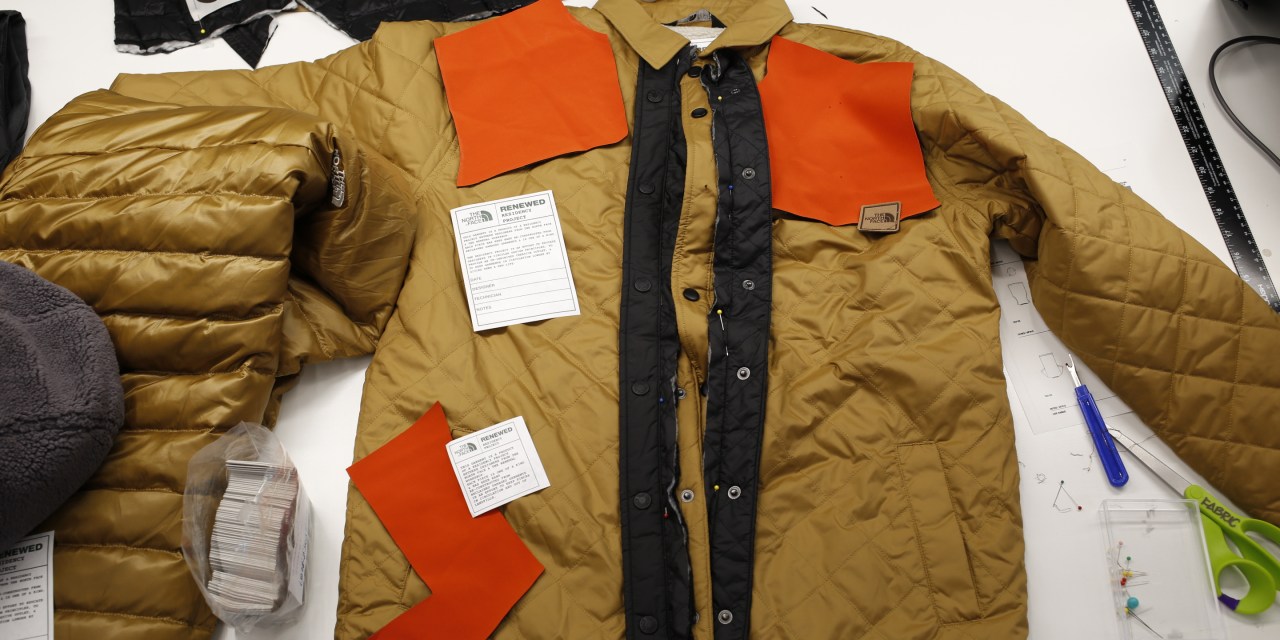Why The North Face is relaunching its “Renewed” resale business

Outdoor gear and apparel brand The North Face is relaunching its resale program with new service partners, in hopes of expanding the types of resale products it services it offers.
In 2018, The North Face first launched its resale program, called Renewed. The program sold a limited selection of popular used products online from the brand like the brand’s Denali fleeces and Summit puffers in partnership with re-commerce supply chain management company, The Renewal Workshop.
The resale business has grown in sales every year since its launch according to The North Face’s senior business manager Nick Thomas, and the retailer’s contract with The Renewal Workshop just wrapped up. In order to drive further used growth — particularly as peers like REI or Patagonia invest in their used programs — The North Face is partnering with software provider Archive and logistics and cleaning provider Tersus to scale the amounts of used products it can sell.
The North Face’s new partnership is indicative of just how competitive the resale space has gotten, particularly as business-to-business startups in the space are getting more attention from venture capitalists. Resale startup Trove, for example, announced a $77.5 million series D funding round led by G2 Venture Partners in August.
Tersus will now handle the backend logistics of all of The North Face’s used products. Items that are eligible for resale will be cleaned, repaired and cataloged by the Tersus team, while items that can’t be sold are decommissioned and recycled.
“We really think of ourselves as sort of the operational backbone of textile circularity,” said Peter Whitcomb, president of Tersus. “Because we have a full suite of textile reclamation services under a roof, North Face wanted everything to come to one place.”
Previously, The North Face didn’t have the capacity to resell items like footwear or sleeping bags. Tersus’ cleaning capacities “almost double” the products they can now offer, explained Whitcomb.
Ad position: web_incontent_pos1
Thomas said the challenge for the brand is that it has to sell used products with “the same performance capabilities and characteristics that it did when it was originally created.” The North Face team is working closely with Tersus on even further expanding resold items into products like technical packs.
Tersus’ location is also helpful at getting The North Face executives more acquainted with the company’s new re-commerce practices. Both Tersus and The North Face are located in Denver. “Getting everyone from someone within our merchandising team to our materials and QA to tour the facility to understand the lifecycle of North Face products is incredibly valuable,” said Thomas.
Archive, meanwhile, will handle the front end of The North Face’s online business, integrating returned products into the brand’s resale site. While brands are used to listing a known number of SKUs across different sizes, resale sometimes means lisiting one-off sizes from products made 20-plus years ago. Archive co-founder and CEO Emily Gittens said the company helps with that process.
“One thing we’ve done with this launch is leverage the product data and the historic product catalog of The North Face, all of the photography information and prices about each of the products,” said Gittens. “That’s allowed us to build this elevated user experience that looks and feels very on brand — compared to The North Face’s mainline site experience — and also allowed for a more efficient process to happen in the warehouse because testers can actually find the product and pull all of that product data.”
To start off, Archive, Tersus and The North Face will serve as middlemen in the re-commerce process — buying used product from sellers, cleaning and storing the product, and then shipping it to the end buyer. However, Archive has worked with brands like Dagne Dover on direct peer-to-peer commerce in the past, more similar to a Depop or eBay.
Ad position: web_incontent_pos2
Thomas believes that resale is getting more competitive and, in turn, hopes to offer direct, peer-to-peer resale with Archive’s technology going forward alongside the model it launched this week.
“There is no playbook, there is no gold standard of how this should be done,” said Thomas. “The way that brands were approaching it even two years ago is very different than the way brands are approaching it today… There’s a lot of competition right now.”

